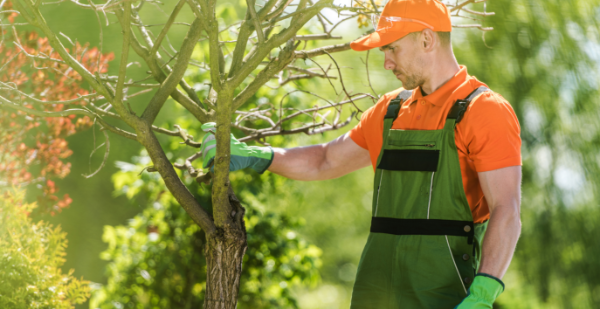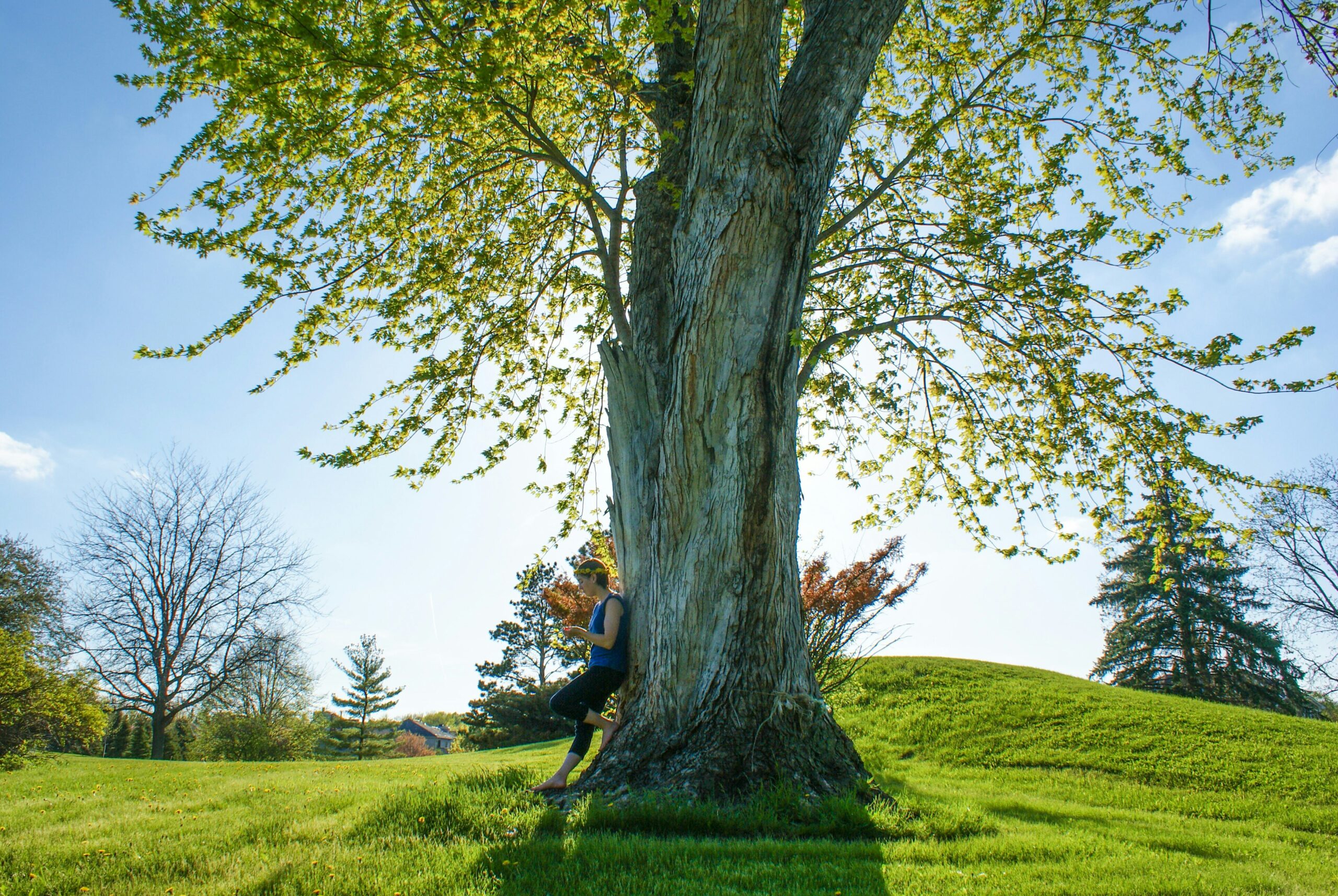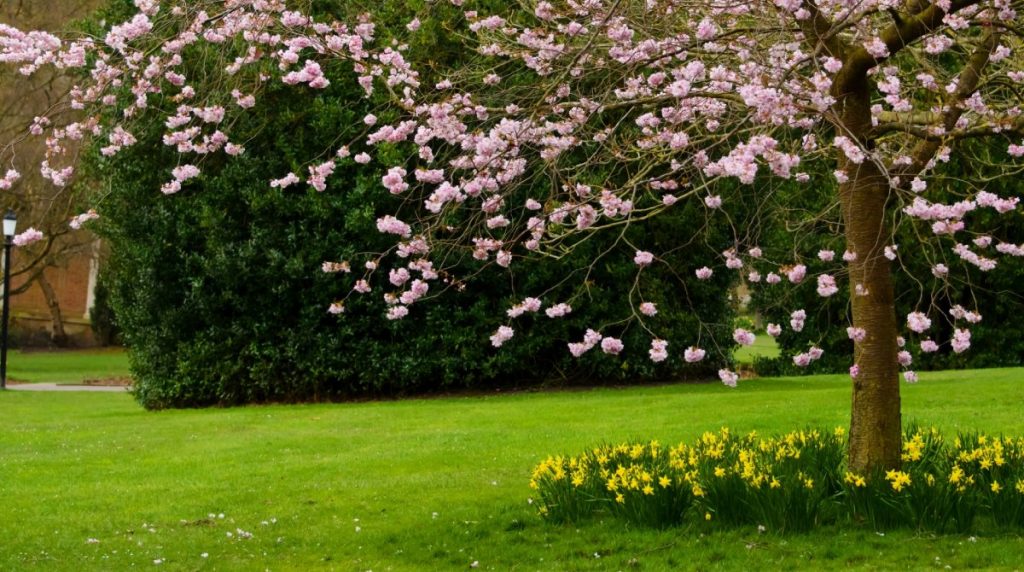
Date June 13, 2024
Trees are a vital part of the urban landscape in Fort Worth, providing numerous environmental, aesthetic, and health benefits. However, maintaining these trees sustainably is crucial for their long-term health and the well-being of our community. This guide explores sustainable tree care practices that Fort Worth residents can adopt to enhance the health and longevity of their trees, contributing to a greener community. For expert guidance in sustainable tree care, trust TreeNewal to provide certified arborists and comprehensive care plans, ensuring the health and longevity of your trees.

Understanding Sustainable Tree Care
What is Sustainable Tree Care?
Sustainable tree care involves practices that not only focus on the immediate health of trees but also consider the long-term impact on the environment. These practices aim to minimize resource use, reduce waste, and promote the natural ecosystem’s health.
Benefits of Sustainable Tree Care
Environmental Health
Sustainable tree care significantly contributes to environmental health by reducing the carbon footprint and supporting local biodiversity. Trees play a crucial role in sequestering carbon dioxide from the atmosphere, thus mitigating the effects of climate change. By adopting sustainable practices, such as using organic fertilizers and minimizing chemical inputs, we can further enhance the trees’ ability to capture carbon. Additionally, sustainable tree care encourages the planting and nurturing of native species, which are better adapted to the local environment and provide essential habitats for wildlife. This support for biodiversity ensures that various plant and animal species can thrive, maintaining a balanced and resilient ecosystem in Fort Worth.
Tree Longevity
One of the primary goals of sustainable tree care is to promote the health and longevity of trees. Practices such as proper pruning, adequate watering, and soil health management ensure that trees receive the necessary nutrients and care to grow strong and resilient. By addressing issues such as pest infestations and diseases early on and using integrated pest management techniques, the overall stress on trees is reduced. This leads to trees that not only live longer but also remain healthy throughout their lifespan, contributing to the beauty and ecological value of your landscape for many years.
Economic Savings
Sustainable tree care can lead to significant economic savings for homeowners and communities. By maintaining the health of trees through preventive measures and regular care, the need for costly treatments, extensive repairs, or tree replacements is minimized. Healthy trees are less likely to suffer from severe damage during storms or other environmental stresses, reducing the costs associated with emergency tree services. Additionally, the use of organic and sustainable practices often reduces the long-term expenses related to fertilizers and pest control, making tree care more affordable and economically viable.
Community Well-being
The benefits of sustainable tree care extend beyond individual properties to enhance the well-being of the entire community. Well-maintained trees contribute to the aesthetic appeal of neighborhoods, parks, and public spaces, making them more inviting and enjoyable for residents and visitors alike. Trees also improve air quality by filtering pollutants and providing oxygen, which is crucial for public health. Moreover, the presence of healthy, mature trees has been shown to reduce stress, promote mental well-being, and foster a sense of community pride. By investing in sustainable tree care, we create more livable, vibrant urban areas that benefit everyone.
Sustainable Tree Care Practices
Proper Tree Selection
Choosing the right tree species for your landscape is the first step in sustainable tree care.
- Native Species: Opt for native species that are well-adapted to Fort Worth’s climate and soil conditions. Native trees require less water and are more resistant to local pests and diseases.
- Diverse Planting: Avoid monocultures by planting a variety of species. This diversity reduces the risk of widespread disease and pest infestations.
Planting Techniques
Proper planting is crucial for tree establishment and long-term health.
- Correct Depth: Plant trees at the correct depth to prevent root girdling and other stress factors. The root flare should be visible above the soil line.
- Mulching: Apply a 2-4 inch layer of organic mulch around the base of the tree, but keep it away from the trunk. Mulching conserves moisture, moderates soil temperature, and reduces weeds.
Watering Practices
Watering is essential, especially during the establishment period, but it should be done sustainably.
- Deep Watering: Water deeply but infrequently to encourage deep root growth. Shallow watering leads to shallow roots and increases drought susceptibility.
- Rainwater Harvesting: Use rain barrels or other methods to collect and use rainwater for irrigation. This reduces reliance on municipal water supplies.
Pruning
Proper pruning enhances tree health and structure, reducing the need for chemical treatments.
- Prune Responsibly: Prune only as needed to remove dead, diseased, or damaged branches. Avoid excessive pruning, which can stress the tree.
- Correct Techniques: Use proper pruning techniques to avoid damaging the tree. Make clean cuts at the branch collar to promote faster healing.
Soil Health
Healthy soil is the foundation of a healthy tree.
- Soil Testing: Conduct regular soil tests to monitor pH levels and nutrient availability. Amend soil as needed based on test results.
- Composting: Use compost to enrich the soil with organic matter. Composting reduces the need for chemical fertilizers and improves soil structure.
Integrated Pest Management (IPM)
IPM is a sustainable approach to managing pests and diseases.
- Regular Monitoring: Inspect trees regularly for signs of pests and diseases. Early detection allows for more effective and less invasive treatments.
- Biological Controls: Utilize natural predators and beneficial insects to manage pest populations. This reduces the need for chemical pesticides.
- Chemical Use: If chemical treatments are necessary, use them sparingly and target-specific pests to minimize environmental impact.
Avoiding Chemical Dependency
Reducing the reliance on chemical fertilizers and pesticides is essential for sustainable tree care.
Organic Alternatives: Use organic fertilizers and soil amendments to nourish trees. Organic options are less harmful to the environment and local wildlife.
Companion Planting: Planting certain species together can naturally deter pests and improve soil health.
Storm Preparation and Recovery
Storms can cause significant damage to trees, but preparation and recovery can mitigate this.
- Pre-storm Pruning: Regularly prune trees to remove weak or damaged branches that could break during a storm.
- Post-storm Care: After a storm, assess trees for damage and address any issues promptly. Remove broken branches and support damaged trees to help them recover.
Promoting Biodiversity
Encouraging biodiversity in your landscape supports a healthy ecosystem.
- Wildlife Habitats: Plant trees and shrubs that provide food and shelter for local wildlife. This includes native flowering plants that attract pollinators.
- Reduced Lawn Areas: Minimize lawn space in favor of diverse planting beds with trees, shrubs, and ground covers. This reduces water use and supports more wildlife.
Community Involvement
Sustainable tree care extends beyond individual efforts; community involvement is crucial.
- Neighborhood Initiatives: Participate in local tree planting and care initiatives. Collaborate with neighbors to create green corridors and support urban forestry projects.
- Education and Advocacy: Educate others about the importance of sustainable tree care and advocate for policies that support urban tree health.
The Role of Professional Arborists
Professional arborists are essential to achieving sustainable tree care. They bring a wealth of knowledge, experience, and specialized skills that are crucial for maintaining the health and longevity of trees in urban environments. Their role extends beyond basic tree maintenance to include advanced diagnostics, sustainable management practices, and strategic planning. By leveraging their expertise, homeowners can ensure their trees are cared for in the most effective and environmentally friendly manner.
Expert Knowledge
Certified arborists possess extensive training and expertise in tree biology, pathology, and ecology. This deep understanding allows them to accurately diagnose tree health issues, such as diseases, pest infestations, and structural problems, that might not be apparent to the untrained eye. Arborists can recommend tailored, sustainable care practices that address specific issues while promoting overall tree health. Their advice often includes selecting the right species for planting, appropriate pruning techniques, and integrated pest management strategies that minimize chemical use and support long-term sustainability.
Proper Equipment
Using the right tools and techniques is crucial for effective and safe tree care, and professional arborists have access to specialized equipment that ensures precision and safety. From advanced pruning tools to sophisticated diagnostic instruments, arborists are equipped to handle a variety of tree care tasks efficiently. Proper equipment not only improves the quality of care but also reduces the risk of injury to both the tree and the person performing the work. This is particularly important for tasks such as large tree pruning or removal, where safety is a paramount concern. By employing the right tools, arborists can perform their work with minimal impact on the surrounding environment.
Long-term Care Plans
One of the most valuable contributions of professional arborists is their ability to develop comprehensive, long-term care plans for trees. These plans are designed to prioritize sustainability and the long-term health of the trees, taking into account factors such as species-specific needs, local environmental conditions, and potential future challenges. A well-crafted care plan includes regular monitoring, preventive treatments, and timely interventions to address emerging issues before they become severe. By following a strategic care plan, homeowners can ensure their trees receive consistent, high-quality care that supports their growth and health over many years. This proactive approach not only enhances the beauty and value of the property but also contributes to the overall ecological health of the community.
Challenges and Solutions
Challenge: Limited Knowledge and Resources
Many homeowners may lack the knowledge or resources to implement sustainable tree care practices effectively.
- Solution: Provide accessible educational resources and workshops on sustainable tree care. Local governments and organizations can offer support and incentives for adopting these practices.
Challenge: Urban Environment Constraints
Urban environments can present challenges such as limited space and poor soil quality.
- Solution: Use creative solutions like vertical planting and soil amendments to overcome these challenges. Professionals can help design sustainable urban landscapes that maximize green space.
Challenge: Pest and Disease Management
Managing pests and diseases sustainably can be challenging without relying on chemicals.
- Solution: Emphasize IPM and biological controls. Education on recognizing early signs of pests and diseases can empower homeowners to take timely action.
Conclusion
Sustainable tree care practices are essential for maintaining the health and longevity of trees in Fort Worth. By adopting these practices, homeowners can contribute to a greener, healthier community while enjoying the numerous benefits that trees provide. From proper tree selection and planting techniques to responsible pruning and integrated pest management, sustainable tree care encompasses a range of strategies that promote environmental stewardship and tree health.
For those seeking professional assistance, TreeNewal offers expert services in sustainable tree care. With extensive experience in the Dallas and Fort Worth Metroplex, TreeNewal can help you implement sustainable practices that ensure your trees thrive for generations to come. Contact TreeNewal today to learn more about our sustainable tree care services and how we can help you create a greener, healthier landscape.








